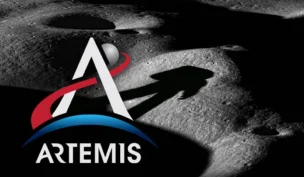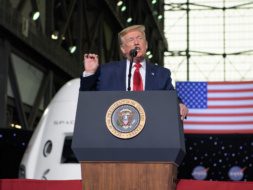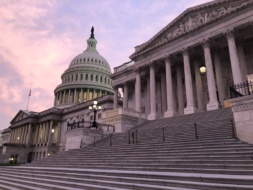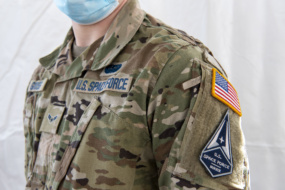Astronauts like Sally Ride and Judith Resnik made history by shattering the glass ceiling to space, but a bipartisan group of lawmakers says it’s time to recognize the group of women who made the first cracks.
Rep. Chrissy Houlahan (D-PA), Young Kim (R-CA), Haley Stevens (D-MI), and Debbie Lesko (R-AZ), the four co-chairs of the Women in STEM Caucus, introduced a bill last month that would award the Congressional Gold Medal to the Mercury 13, a group of women who underwent the same training as Mercury astronauts but never went to space. If the bill passes, the medal will be displayed at the National Air and Space Museum.
A little history: At the dawn of America’s space program, NASA’s William Randolph Lovelace developed a rigorous testing program for wannabe astronauts to be administered to a group of all-male volunteers. At the same time, Lovelace used private donations to put women through the same evaluations, and 13 women passed the first round of tests (in some cases, they outscored the men).
The program was canceled in 1962 because the next round of tests required military and NASA equipment, which the women couldn’t use since they weren’t affiliated with the space program. Two women testified before Congress in July 1962 asking for the program to continue so they could prove they had the right stuff.
Polaris chatted with Houlahan about the bill, and her own dreams of going to space. The full edited Q+A is below.
What effect do you hope this bill has?
It’s both backward looking, to honor and remember people who not that long ago were actively contributing to our first efforts in space, and forward looking for the next generation—not just women and young girls, but people who are not what you typically think of when you think of an astronaut, which is a white man.
Are you trying to pass it as a standalone, or attach it to other legislation?
It might be a standalone. We’re working on getting a companion bill on the Senate side as well. But you’re not wrong that sometimes magic happens and we’re able to put it into some other piece of legislation that is moving.
One of the Mercury 13, Wally Funk, never flew with NASA, but did with Blue Origin. What opportunities does commercial space offer to communities typically underrepresented in the astronaut corps?
The litmus test back in the day was that you had to have been a jet pilot. Many of the Mercury 13 were pilots and had more hours in cockpits than some of the people who were part of the astronaut corps. In modern times where space is more open and more commercialized, those kinds of limitations will not hold.
It’s really cool that we’ve received a lot of outreach from people who were involved in Mercury 13 about the bill. Sally Ride’s sister contacted the office in gratitude. Sally Ride is one of the reasons why I’m talking to you right now.
Why are you such a fan of Sally Ride?
When I was a girl, I really wanted to be an astronaut. I admired Sally Ride. She was an inspiration I could look to to see there was a possibility of being that person. I wanted to follow in her footsteps.
I served in the military and have my own challenge coin, but I also have a special challenge coin I give to kids, which is a Sally Ride quarter. She still influences my life.
Would you go to space now if you got the chance?
100%. I can’t afford it at the price tags they’re charging right now, but I would 100% do it. For an April Fools joke, I told our kids that we had been accepted to go colonize Mars. Our kids are in their 30s, so their reaction was, so you would leave us here? But they know how important this is to me, so they feel for it for a bit.




